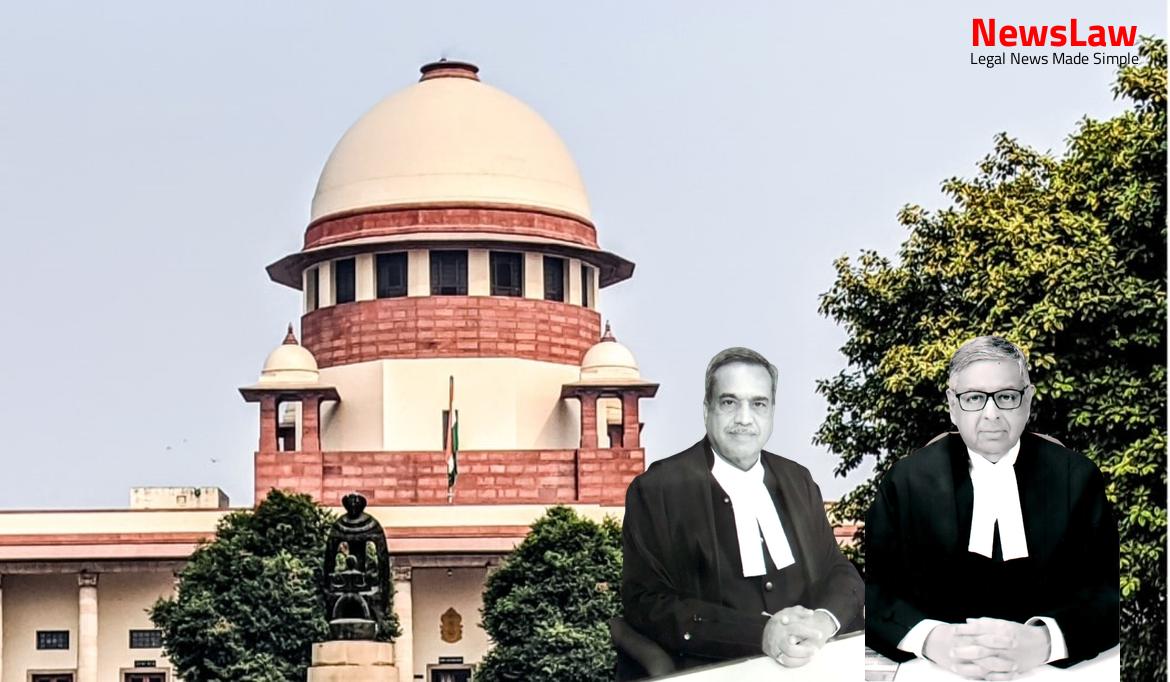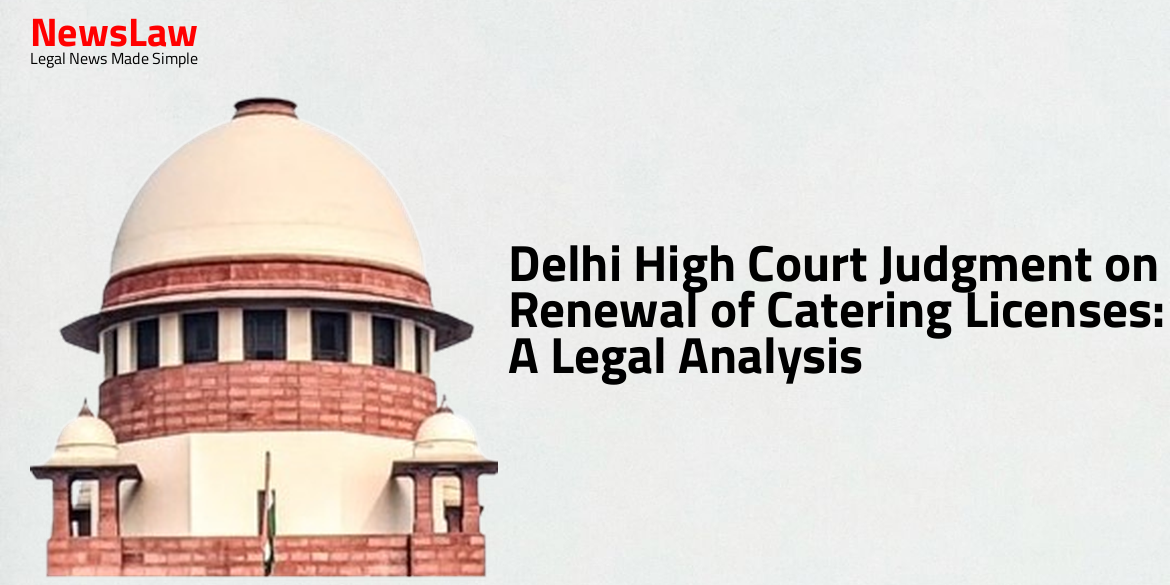Delve into the legal analysis surrounding the qualification criteria dispute for clerk/cashier positions in cooperative banks in Kerala. The focus is on the court’s examination of whether in-service candidates need to possess a graduation qualification, as stipulated by the relevant rules and advertisements. The case delves deep into the complexities of statutory provisions and harmonization of conflicting regulations to determine the eligibility criteria for these positions.
Facts
- The Single Judge’s petition was dismissed due to laches.
- The Division Bench of the High Court upheld the dismissal.
- A Full Bench referred to different notifications and Regulations to determine that stipulating graduation for subject-posts was unsustainable.
- The KPSC is challenging this finding.
- A Full Bench of the Kerala High Court held that Rule 186 of the Kerala Co-operative Societies Rules, pegging pay at Rs. 250, was unworkable.
- The 1999 notification specified specific qualification criteria for the advertised posts with a 50% reservation rule.
- The appellant has challenged the advertisement dated 26.10.1999 before the High Court.
Also Read: Judicial Review of Delayed Writ Petition
Arguments
- In-service candidates argue that SSLC or equivalent qualification should be sufficient for them, which is essentially a school clearance certificate.
- Counsel argues that the qualification prescribed in the service rules is SSLC with J.D.C. and 3 years of experience in the affiliated Primary Cooperative Society, which is contrary to the qualification in the advertisement and considered discriminatory.
- The appeals pertain to the qualification criteria for clerk/cashier posts in cooperative banks in Kerala from the in-service category.
- The posts advertised fall under the classes of societies to which the rules apply.
- KPSC states that the decision of a Coordinate Bench is a binding precedent for these appeals as the legal question is identical to previous cases.
- In-service incumbents require a minimum of 3 years of regular service in any cadre of the society.
- The dispute revolves around whether in-service applicants for posts with starting pay over Rs. 250 per month need a minimum educational qualification of graduation.
- Rule 187 of the Kerala Co-operative Societies Rules reserves 50% of vacancies for employees of member societies, while the advertisement specifies the qualification for Cashier-cum-Clerk posts in District Co-operative Societies.
- Rule 186 stipulates that graduates are required for posts with monthly pay of Rs. 250 and above.
- The main point in these proceedings is whether in-service candidates need a graduation qualification.
Also Read: Ownership Dispute: Legal Analysis on Admission and Decree
Analysis
- The Coordinate Bench decision in the case of Valsala Devi did not consider the Full Bench decision which was in appeal.
- The Coordinate Bench rejected the applications of the respondents as in-service candidates for the posts advertised.
- The Full Bench judgment was delivered in 2007 but was not considered by the Coordinate Bench during the hearing of the appeal.
- The source of power under which the 1988 Regulation was framed was not disclosed in the annexure.
- The legality of the 1982 circular and the 1988 GO was not questioned by KPSC.
- The overlapping effect of the 1969 Rules and GOs issued under Section 80 of the Act in determining qualification criteria was noted.
- The Court needs to take a harmonious approach in reconciling inconsistent provisions flowing from different statutory origins.
- The Rules under Section 80(3) address detailed stipulations of service for officers and servants of specified societies under Section 80(1).
- The judgment of the Coordinate Bench was not decided on the argued points.
- The State Government has the power to classify societies according to their type and financial position.
- Qualification criteria for the post of clerk or cashier in cooperative societies included B.A/B.Sc./B.Com with HDC or JDC OR B.Com with Co-operation OR B.Sc (Co-operation and Banking) of the Kerala Agricultural University.
- Employees must have completed at least three years of regular service in any cadre in a Member Society/Primary Cooperative Society affiliated with the respective District Co-operative Bank.
- The State Government is empowered to make rules regarding the qualifications of employees of societies under Section 109(1) and (2)(xv) of the Kerala Co-operative Societies Act.
- Section 80(3) of the Act requires the government, in consultation with the State Co-operative Union, to make rules regulating the qualification, remuneration, allowances, and other conditions of service of officers and servants of specified classes of societies.
- Rule 186(1) of the 1969 Rules specifies qualifications for appointment in posts with starting pay below Rs. 250, including completion of the Sub Personal Co-operative Training Course.
- Rule 187 deals with reservation of in-service candidates in appointments to apex societies or central societies, reserving 50% of vacancies for employees of member societies with a minimum of 3 years of regular service and required qualifications for the notified posts.
- Employment notifications for the posts of clerk or cashier in cooperative societies had starting pay beyond Rs. 250 per month at the time.
- The Division Bench rejected the plea of in-service candidates for direct recruitment.
- The Full Bench of the High Court doubted the correctness of the Division Bench’s view in the Ramesan case.
- The Full Bench, in a judgment delivered on October 24, 2007, upheld the contention of in-service candidates (who were not graduates) to be considered for recruitment to clerk/cashier positions in District Co-Operative Banks.
- Various administrative orders and notifications were referred to, with the Full Bench examining and upholding the in-service candidates’ contention based on these documents.
- Reference was made to the Constitution Bench decision in the case of State Of U. P. v. Manbodhan Lal Srivastava (AIR 1957 SC 912) and a Division Bench decision in Valsala Devi v. Leela Bhai (2002 3 KLT SN 18) which influenced the Full Bench’s decision.
- The Full Bench also referenced a communication by the Registrar of Co-operative Societies Trivandrum dated June 15, 1982, regarding the scale of pay for various categories of posts.
- The Court highlighted the limitations of the powers of the Public Service Commission (PSC) and emphasized that the PSC cannot exceed the qualifications prescribed by the rule.
- It was clarified that Article 320(3)(c) of the Constitution does not provide a cause of action to a public servant, and cannot be construed as a rider or proviso to Article 311.
- The Coordinate Bench had the advantage of reviewing the reasoning in the Full Bench decision.
- The Full Bench decision was rendered before the Coordinate Bench decision.
- The Coordinate Bench decision would not be a binding precedent for the present proceedings based on the timing and review process.
Also Read: Interpretation of Statutory Limitation under Section 263(2)
Decision
- The five appeals of the Commission are dismissed.
- Petitioners who have not been otherwise ineligible shall be allowed to write the test.
- All other connected applications are disposed of.
- The appeal in the case of Valsala Devi is also dismissed.
- There shall be no order as to costs.
- Appropriate steps will be taken by the Public Service Commission based on the performance of these applicants.
- No relief can be granted by antedating the promotion of the applicant who chose a different career path.
- The application is rejected.
- The appeal in Civil Appeal No. 6734 of 2003 was dismissed by a Coordinate Bench on 29th January, 2008.
Case Title: KERALA PUBLIC SERVICE COMMISSION Vs. K.N. RADHAMANI AND ORS. ETC. ETC. (2021 INSC 446)
Case Number: C.A. No.-001802-001806 / 2010



